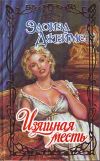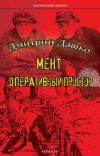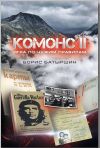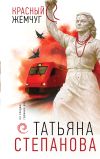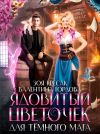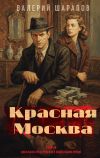Текст книги "Rasputin"
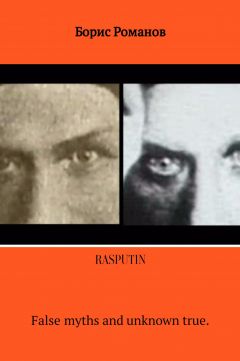
Автор книги: Борис Романов
Жанр: Жанр неизвестен
Возрастные ограничения: +16
сообщить о неприемлемом содержимом
Текущая страница: 1 (всего у книги 2 страниц) [доступный отрывок для чтения: 1 страниц]
Rasputin. False myths and unknown true.


On the cover you can see two photos of Grigory Rasputin: non retouched (original photo) made during the life of Rasputin (left) and retouched, from Soviet publications after 1917 (right). In this brochure, we'lll tell when and how were created the false myths about Rasputin. We'll also tell the truth about him.
Foreword
Before discussing the origin of the false myths, let me give here excerpts from the Wikipedia's article about Rasputin:
http://en.wikipedia.org/wiki/Rasputin
<<Grigori Yefimovich Rasputin; baptized on 22 January [O.S. 10 January] 1869 – murdered on 30 December [O.S. 17 December] 1916 [1]) was a Russian peasant, mystic and private adviser to the Romanovs, who became an influential figure in the later years of tsar Nicholas. This was especially the case after August 1915[2] when the Emperor left Petrograd for Stavka at the front, leaving his wife Alexandra Feodorovna to act in his place. Some people—then and now—believe that Rasputin's personal influence over the Tsarina became so great that it was he who ordered the destinies of Imperial Russia, while she compelled her weak husband to fulfill them.[3]
Rasputin was neither a monk nor a saint; he never belonged to any order or religious sect.[4] He was considered a strannik ("pilgrim"), wandering from cloister to cloister. He was obsessed by religion[5] and impressed many people with his knowledge and ability to explain the Bible in an uncomplicated way.[6][7][8][9] It was widely believed that Rasputin had a gift for curing bodily ailments. In 1907 Rasputin was invited by Nicholas and Alexandra Feodorovna to heal their only son, tsarevich Alexei, who suffered from hemophilia. "In the mind of the Tsarina Rasputin was closely associated with the health of her son, and the welfare of the monarchy."[10]
Rasputin was regarded as a starets ("elder") by his followers, who also believed him to be a psychic and faith healer.[11] His critics referred to him by the same term in an ironic fashion. He never considered himself to be a starets.[12] Rasputin spoke an almost incomprehensible Siberian dialect[13] and never preached or spoke in public.[14] The Tsarina saw Rasputin as a "Man of God" and clairvoyant,[13] but his enemies saw him as a debauched religious charlatan and a lecher. Brian Moynahan describes him as "a complex figure, intelligent, ambitious, idle, generous to a fault, spiritual, and – utterly– amoral."[15] He was an unusual mix, a muzhik, prophet and at the end of his life a party-goer.[16]
Rasputin began as a symptom of the royal family's isolation from the public; he ended by deepening that isolation to an unbridgeable chasm.[17] While his influence and role may have been exaggerated, historians agree that his presence played a significant part in the increasing unpopularity of the Tsar and his wife immediately prior to the February Revolution of 1917.[18] The conspirators, who did not accept a peasant being so close to the Imperial couple, had hoped that Rasputin's removal would cause the Tsarina to retreat from political activities. They also believed that Rasputin was an agent of Germany, but he was more of a pacifist, opposed to all wars.[19]
There is much uncertainty over Rasputin's life and influence, as accounts are often based on dubious memoirs, hearsay and legend.[11] Colin Wilson said in 1964 that "No figure in modern history has provoked such a mass of sensational and unreliable literature as Grigory Rasputin. More than a hundred books have been written about him, and not a single one can be accepted as a sober presentation of his personality. There is an enormous amount of material on him, and most of it is full of invention or wilful inaccuracy. Rasputin's life, then, is not 'history'; it is the clash of history with subjectivity."[20]
In Russia, Rasputin is seen by many ordinary people and clerics, among them the late Elder Nikolay Guryanov, as a righteous man.[21] However, Alexy II of Moscow said that any attempt to make a saint of Rasputin would be "madness".[22]>>
***
Myths about the personality of Grigori Rasputin and about his role in the life of the Royal family were created as on the eve of Russian revolution (1912-1917 years), so and later (in the USSR in 1917-1920s). These myths are still alive, and still interest in his personality is great – both in Russia and abroad. We read in Wikipedia:
http://en.wikipedia.org/wiki/Rasputin
<<After his death the memoirs of those who knew Rasputin became a mini-industry. The basement where he died is a tourist attraction. Numerous film and stage productions have been based on his life. He has appeared as a fictionalized version of himself in numerous other media, as well as having several beverages named after him. <…>
The disco single "Rasputin" (1978) by the German-based pop and disco group Boney M references Rasputin's alleged affair with Alexandra Fyodorovna. The tune is based on the Turkish song "Kâtibim". This song was later covered by the band Turisas.
2003 Einojuhani Rautavaara composed Rasputin, an opera in three acts
In 2011, Josée Dayan directed a French-Russian produced a film on Rasputin for television called Raspoutine which starred Gérard Depardieu in the role of Rasputin.
Rasputin was the subject of the BBC Radio 4 series Great Lives, first aired on 1 January 2013.
Rasputin is the subject of a musical theatre production, Ripples to Revolution, by Peter Karrie.
With the aim of casting Leonardo di Caprio as Rasputin, Warner Brothers have bought the rights to a screenplay by Jason Hall.>>
Bibliography of books about Rasputin in Russia has more than forty books (and thousands of articles in the media). The most famous study was published by Edvard Radzinsky in 2004 [23] , but after 2004 the new books on the subject continue to be published almost every year. Among them are also apologetic study (or almost apologetic ), as [ 24, 25 , 26]. The author of this brochure is devoted to this topic a big chapter in my book «The Emperor , who knew the fate. And Russia, who did not know» [27] . Study set out below are based largely on the materials of my book – and I hope that this study is objective.
Some Russian movies about Rasputin became almost a "cult." Unfortunately, the most popular of them ("Agony" by Elem Klimov, 1985, a work of a talented) is very biased. Year after year (and several times per year) Russian TV channel again and again show this film ("Agony") – the film is so talented and popular as it is full of old false myths about Rasputin and about the Tsar's family.
It would seem that in recent years much has been written about the streams of slander and lies that have hit the Tsar's family in during the time of Provisional Government (March-November 1917) and then in the Soviet Russia and the USSR. Rivulets of dirty rumors begun in 1916, then it turned into the stormy fetid flows. If before the February revolution, these streams flooded only drunk and hysterical Petrograd, then the Provisional Government consciously and purposely hit them in the whole of Russia.
So, it turns out, this heinous flow of slander and lies of nine months of 1917 – it still generates most people's notion about Raspuitin ! .. For almost 100 years!
Have to tell all this in detail.
Myths about Rasputin until March 1917.
Until 1912 Rasputin was accused only of belonging to a banned religious sect «whips» (where practiced group sexual orgies). However, the official inquiries in 1903 and 1912's have not confirmed these rumors.
First new false rumors (and rough jokes) about Rasputin's debauchery (and his impact on the Empress) appeared in 1912-1915. They proceeded on the one hand, from the revolutionaries (SRs and the Bolsheviks), and they were designed for ordinary people (and for soldiers). On the other hand, false rumors were created and started from the grand salons of some relatives of the royal family, which were in opposition to Nicholas and Alexandra.
The situation has sharply deteriorated in the autumn of 1916, when the Ministry of the Interior and the Russian counter intelligence discovered a large corruption in organizations "Zemgor" and “Military-Industrial Committee», which were led by prominent opposition leaders of the State Duma, Prince Lvov and Guchkov. Cadet Leader Miliukoff provided to these organizations for strong political support, he was also the leader of the opposition bloc "progressives" in the State Duma.
Then, November 1, 1916 followed by the famous speech Milyukov in the State Duma ("What is it – stupidity or treason?"), In which he accused the Empress and Rasputin in a betrayal. According to some modern Russian historians, this Milukoff's speech marked the transition opposition offensive to forestall future charges in corruption and declare these future charges as "politically motivated." [28] [29] [30]. Since November 1916 Miliukoff and Gutchkov sharply stepped conspiracy against Nicholas II, which they have successfully implemented at the end of February 1917 (with a few generals who have previously been implicated by them in this conspiracy).
Provisional Government. Lies and slander in «the freest country»
(Based on the eponymous article by S. Fomin («Russian Gazette» of 19 December 2003 http://www.rv.ru/content.php3?id=1402 ) and «The Encyclopedia of the Great Patriotic films.» Agony»» (http://top-rufilms.info/p1-84.html ), with additions and comments of the author.) More details about all of this, you can read in my book [27].
The first Provisional Government consisted mainly of the conspirators. Prince Lvov became Prime; Miliukov and Guchkov headed ministries . Naturally, winning the conspirators wanted to justify their coup and «playing card Rasputin» began to actively play out in the government media. It is also clear that this company was actively supported by all the leftist forces.
Simultaneously, the Provisional Government accused of betraying the motherland Rasputin and the Empress . They , as well as the deposed imperial government were also accused of corruption. However, these numerous accusations further found no documentary evidence – despite the fact that the Provisional Government has put a lot of effort to search for evidence. To search for evidence, at the beginning of March 1917 (immediately after the abdication of Nicholas II) was established National Extraordinary Investigation commission (NEIS) of Provisional Government.
By the summer of 1917 the members of the committee NEIS stated that they do not find any of the offense under investigation – and when the chairman of the commission (Muraviev) tried to force them to change their minds , some of them resigned ( in particular, the famous prosecutor Rudnev ) . In 1917 , Kerensky was forced to admit that they " did not find elements of crime in any actions of Nicholas II and his wife." Same Kerensky confirmed to British Ambassador Buchanan. Also NEIS failed to show any corruption charges former tsarist ministers, the general manager and other senior officials , both civilian and military and naval authorities. [31, 32] .
But after the February Revolution of 1917 almost all the newspapers and magazines were literally overflowing maligned (and often absolutely fantastic lies) about Rasputin and the Royal family – and no one could oppose it (all monarchist newspapers and organizations were banned immediately after the abdication Nicholas II). This fetid stream flowed broad river from the pages of books, with postcards, cartoons, from the movie screens.
In March and October 1917, many called Russia the freest country in the world. In many ways it was so. However, most Russian media published daily on their front pages more and more new gossip and dirty lie about Rasputin and the Royal family – but the refutations flowed out of the Commission of Inquiry (NEIS) were published then by small type in the mid-Cretaceous newspaper issue …
Theaters were filled with evil farcical performances. In Petrograd walked plays'' "Grishka Rasputin'','' Night orgy of Rasputin'', ''Grishkin harem'','' How Grishka and Nikolka were reasoned", in Moscow, other than those listed lampoons -''Tea with Vyrubova'. In town Vyborg in April 27, 1917, the premiere of the farcical play under title ''Tsarskoselskaya grace.'' A whacker of these evil farcical performances.was spiced with bad language and even pornography – and, in modern slang, "People hawala" all in both capitals with enthusiasm.
During March – November 1917 reached more than ten sensational " revelatory " movies about Grigory Rasputin. Two-part "drama '' sensational" ''Dark forces – Grigori Rasputin and his associates'' became the first in the dirty stream. In the credits of the film was written: " Production Joint Stock Company G. Libken". Gregory Libken – known manufacturer (sausage-maker) and director of the film studio "Magic Dreams" , which was "famous" with scandal back in the 1910s . Film was created in record time , in within a few days (!) . March 5, 1917 "Early morning" newspaper' announced it, and on March 12 (10 days after the abdication of Nicholas II ) it already came to cinemas .
It is noteworthy that this first false film as a whole failed and it had marginal success only in small cinemas (on the outskirts of the city), where the audience was rough .... Later, according to press reports, the demonstration of this film caused a stir in the Tyumen cinema'' Giant''. Moviegoers "met" there with ''Grishka-horse thief, Grishka-arsonist, Grishka-weakmindness, Grishka-libertine, Grishka-seducer''. – However, the hype and excitement in the hall were caused by not Rasputin's adventures in the tsar's palace, but, by showing the attempt of assassination Rasputin (by Khionia Guseva) in Jule 1914 and killing him in the palace of Prince Yusupov in December 1916.
Have to say, the appearance of these libelous films led to a protest of more educated public because of it's "pornographic and' wild' erotica" – so educated viewers identified their claim .. In order to protect public morals, they even offered to introduce Film Censorship (that in the early days of the revolution!), temporarily assigning it to the police. Filmmakers Group petitioned the Minister of Justice of the Provisional Government Alexander Kerensky to prohibit a demonstration movie'' Dark forces – Grigory Rasputin'' to stop the flow of "mud movie and pornography".
However, this attempt did not stop the further spread up and down the country of "movie-rasputin-ship" . Libken's firm launched another series – "Funeral Rasputin" . To somehow maintain his tattered reputation , the company donated for the benefit of the disabled 5000 rubles and reported it in the newspapers. There were followed other films on this theme: ''People sin and blood'' , '' Holy hell'' , ''Mysterious murder in St. Petersburg December 16', ''Trading House Romanov , Rasputin, Sukhomlinov Myasoedov, Protopopov & Co.'' , ''Royal guardsmen" , etc. Most of them were released in the same joint-stock company of G. Libken.
Flows of dirty falsification spilled across the country. The authorities were those who "overthrew the monarchy" and they needed to justify the coup. They needed it the more that – according with the letter (in May 1917) of main Russia liberal Paul Miliukoff – people across Russia (except that of Petrograd and else two or three major cities) was set monarchist [27]. At all, by October 1917, massive streams of slander about Rasputin and the Royal family did their job – many people have believed in this lie.
Bolsheviks, the USSR.
Two wave of slander.
Bolsheviks (after the October Revolution in 1917 ) started the propaganda against the tsarist more fundamentally . Of course , Rasputin's films-waste-paper gained a second wind, but the Bolsheviks took a much broader and deeper steps to falsify history . There were created and published falsified (by P. Shchegolev and other authors) multivolume protocols Extraordinary Commission of Inquiry , the Provisional Government (NEIS) . There have been created and published so-called «Vyrubova Diaries» – and these « diaries» were falsified (from start to finish) by same P. Shchegolev with «Red Count» A. Tolstoi .
In the same row stands a widely demonstrated play "Conspiracy of the Empress" (by A. 'Tolstoy). According to some reports, in the 1920s, "the chief Soviet historian" Pokrovsky has faked (using handwriting experts of the GPU-CheKa) many documents relating to the Royal family, including and Diaries of Nicholas II, as well as documents about the murder of the Royal family (the so-called "Note Yurovsky") – and all it have provided a "solid" foundation for future historical fraud, and for the "engineers of human souls" – Soviet writers. Even party comrades called "historian" Pokrovsky "dashing old man" …
Only by 1930-th years , the company falsifying history of tsarist Russia and mass befuddling people waned – a new generation (who entered adulthood in the USSR) , was already zombified . They believed that tsarist Russia was "backward and dark" , they believed that the tsarist government and officials were corrupted "top to bottom", they believed that Nicholas II was "bloody" , "weak and gutless", they believed that Empress was psychopath , who was completely dependent on Rasputin , and they believed that Rasputin was embodiment of all vices and malicious manipulator of tops tsar's power ....
All this was fixed and "canonized" in the history books throughout the existence of the USSR. It was the second wave of falsification – "canonization" falsified history, which was fixed and developed also in the media, literature, cinema and then on television.
Alas, similar views on the history of imperial Russia widespread so far, and not only in Russia … Only in the last 15-20 years, professional historians have begun to study previously inaccessible (in the USSR) documents and memoirs of contemporaries of the events of early XX century in tsarist Russia (which were then published abroad).
TRUTH ABOUT RASPUTIN.
Alexander Tihonovich Vasilyev (1869-1930) served in the secret police («The Secret Service», – «Okhranka» in Russian) in the capital of the empire in 1905-1917, and he was the head of the police department in 1916 17 years – so he knew about Rasputin more than anyone else. His memoirs were first published in France in the 1920s, and then in London in 1930 (in English, entitled «The Okhrana: The Russian Secret Police»). In the new Russia, his memoirs were first published in 2004 in the book "Okhranka: memories of the heads of security departments " [33]
These memoirs he wrote in the late 1920s in Paris, and probably in those years there was no reason to distort Rasputin's history for the sake of whom whatsoever. So here's what he wrote about Rasputin:
<<Many times I have had the opportunity to meet with Rasputin and talk with him on various topics. In such cases, I was always amazed at the patience and diligence with which he delved into the essence of the topic, and he listened to each person with rapt attention, trying not to lose the thread of conversation. He interjects very rarely, and when he did, it usually turned out of place. More than once I heard him interrupt pompous nonsense by his exact exclamation which immediately lowers chatterbox from heaven to earth. <…>
Rasputin did not want to climb to the forefront of the political arena, he had been pushed up a top by other people – those who sought to shake the foundation of the Russian throne and empire … He did not realize that they do him just a puppet in the hands of nefarious schemers.
These harbingers of revolution attempted to make a scarecrow from Rasputin -with a goal to implement their satanic plans. So they slushed most absurd rumors, which created the impression that only through the mediation of the Siberian peasant can achieve a high position and influence …
Mind and natural savvy sometimes gave him the opportunity to soberly and astutely judge a person – even if he only once met him. It was also known to the queen Alexandra, so she sometimes asked his opinion about a particular candidate for the highest office in government. But from such innocuous questions and up to appoint ministers through Rasputin – a very big step, and this step, neither the tsar Nicholas II nor Alexandra certainly never did …
Nevertheless, many people believed that all depends on the piece of paper with a few words written by hand Rasputin … I never believed in it, and sometimes even investigated these rumors, but never found conclusive evidence of their truthfulness.
Cases that I tell are not my sentimental fictions (how can someone think) – the reports police agents testify about these cases – reports those agents who for many years worked as a servants in the house of Rasputin and therefore they knew his daily life in the smallest details. >>
The police knew more than ten cases where Rasputin wrote to the tsar or tsarina of the note to appoint one or another of the applicant to a one or another particular high position – but it is also known that only two or three cases when Nicholas II has appointed a man whom asked Rasputin in his notes. Probably, in these cases, the views of Rasputin coincided with a choice of Nicholas II.
Next Alexandr.Vaslyev writes:
<< His political views, as he generally had it, were simple enough. He was no more than an ordinary Russian patriot and sincere monarchist, but not in the sense which is attached to this word today: he was neither left nor right constitutional monarchist, – as monarchy was for him a kind of religion. Russia without a king, was something that he could not imagine. Subtleties of the so-called high politics were far from the circle of his interests, and he could not quite understand what ultimately seek different parties, factions in the Duma and newspaper.
His basic political principles consisted simply appeasing the enemies of the tsar, as it was possible. So, once he explained to me with great fervor his view that ministers must send all their energy to the restoration of peace with all internal enemies. He said that he was sorry about the enemies of the tsar, because they do not know what they do – and all that is needed, it is to explain to them their error, and then all the unrest will immediately cease. Although he knew nothing about politics, but showed great interest in everything that seemed to him practically important and valuable for people, even living in St. Petersburg, he remained quite peasant to sympathize and understand their needs. <…>
If he happened to mention the tsar or tsarina, his remarks were unusually respectful both in words and in tone and these statements were made with a sense of awkwardness, indecision. I never heard him bragging ties with the tsar's family…
Despite all this, of course, I knew very well – probably better than many others – that the rumors about his self-confident behavior in high society have reason. Also, I had the opportunity at any time to review police reports pertaining to this case. However, it should be noted that no one in the tipsy state owns quite its own language and that his enemies often tried to drink with him, and then ask provocative questions, to which he gave sometimes a hasty answers.
Of course, Rasputin had a weakness for wine and women, but it was not the result of his peasant origin . Before he was able to enter the St. Petersburg high society, he did not have such extremes. As our investigation tell us, the more likely that these extremes appeared in the new society of corrupt city residents who deliberately tried to corrupt and spoil him, so as to discredit the tsar and his wife. Once succeeded in blackening the name of Rasputin , these people began to weave a net around him ...>>
And further A. Vasiliev reiterates:
<<Rasputin did not want to climb to the forefront of the political arena, he had been pushed up a top by other people – those who sought to shake the foundation of the Russian throne and empire … He did not realize that they do him just a puppet in the hands of nefarious schemers.
These harbingers of revolution attempted to make a scarecrow from Rasputin -with a goal to implement their satanic plans. So they slushed most absurd rumors, which created the impression that only through the mediation of the Siberian peasant can achieve a high position and influence …>>
About sexuality and lewdness of Rasputin,
(Version of Edvard Radzinsky [23] with my additions and comments)
As we mentioned above, in the years 1903-1912, the Russian Orthodox Church (ROC) suspected Rasputin in «khlstovstvo». Let me remind you that the religious sect «Khlysty» («Whips» in English) practiced group sex orgies – sect members deliberately sinned, – with a goal after that, through earnest and deep repentance find «god in me». It was part of their religious doctrine. We mentioned also that by 1912 all suspicion of belonging to this sect Rasputin were officially refuted.
Nevertheless, there is no doubt that "Khlstovstvo" had some influence on Rasputin. "Whips" were a banned sect. Twice (in 1903 and 1907) Spiritual Consistory of ROC conducted investigations on this score – and nothing could be proved. However, many other evidence collected "Extraordinary Commission of Inquiry" Provisional Government (March-October 1917) have confirmed his initial "Khlystovstvo", until 1903. But later he left this sect.
Evidence (including the evidences of the spiritual leaders of the " whips") confirm that Rasputin to 1905-1907 . developed his personal teachings and departed off the "whips". They believed that he distorted their teachings. Rasputin believed that he reached the top of "Khlysty" doctrine: that he showed "a god into himself" (into Rasputin), that he settled "holy spirit" into himself, and that he himself was "Christ" now – and went more far than "whips" . "Whips" considered a manifestation of " god in me " – by overcoming the flesh through sin and repentance – they considered it as a top, But Rasputin considered it for himself only as a new " starting point."
Back in the beginning of the way to the top (to 1903) Rasputin gained some notoriety as an Orthodox pilgrim and healer . He received the patronage of the famous Orthodox hierarchs (in Siberia and then in Kazan and Kiev). They offered him to get a good education in the Orthodox Theological Academy in St. Petersburg. However , after meeting with the famous preacher John Kronstadt ( spring 1903 ), Rasputin decided that is designed for a higher mission than to be one of the many Orthodox priests. The fact is that by the time he reached high abilities in healing and prophecy. He achieved these abilities through many sufferings and taming the flesh (through overcoming or sublimation of sexuality) .
However, even in this state (self-made-man) Rasputin suffered unspeakably for female flesh. He had a violent temper and was unable to reach spiritual purity and height of Christian saints (recognized in ROC), such as St. Seraphim of Sarov . This was probably due to the peculiarities of his personal sexual potential (libido) . Probably this suffering (with capable of healing and prophecy ) led him to believe that his sexual suffering – is also a sign from above that his mission is also associated with healing people from sin of lust, sin of debauchery.
We should emphasize here that we are not talking about a harmonious sexual life in a Christian marriage, but namely about "fornication" about lust and debauchery. About the fact that we call "sexual freedom", It is known of the material of "Extraordinary Commission" (NEIS, March-October 1917, investigation n.13, – the investigation of "dark forces") that Rasputin was never pursued married women if they claimed about their mutual happiness in marriage (see . E. Radzinsky [23], p.271). Incidentally, this is why mutual love of Nicholas II and Alexandra was a sacred for him.
Further, Rasputin's logic is the following. But if a woman does not love her husband but still lives with him in marriage (even sanctified by the Church, and without adulter), it is sinful. Not to mention the women cheated on her husband, or simply "indecent" women. All that does not carry true love, all it is very sinful – and Rasputin believed himself elected to heal these women. Healing through sexual intercourse with him. Surprisingly, apparently, after a sexual intercourse with him many women really get rid of lust and started a new life!
From time to time he checked his own ability to avoid the sin of lust , – whether to ensure in his own spiritual power, whether in the hope that sexual suffering leave him and he can stop his strange (and scandalous to the outside world) mission. This check was his frequent visits to prostitutes. These visits were constantly fixed by outer supervision disguised police agents . Repeatedly in the reports of police we can read (hereinafter quote by Edvard Radzinsky [23]) :
«Spending time with senior ladies, he nevertheless does not stop visiting prostitutes.»
Once police agents were able to "spy" what he deals with them. From the agent's note [23]:
«Rasputin bought her two bottles of wine, but did not drink … asked her to undress, examined the body and left»
It is also known that after visiting prostitutes he "walked down the street, waving his hands, slapping his body and talking to himself", – that is clearly, being not himself. Naturally, any man after such «exercises» can « go to the roof» Perhaps he could not always withstand the temptation. But he tried …
One of educated friends Rasputin (Filippov) told in 1917 about one of the rare conversations with him about women (actually Rasputin avoided talking about women with the "uninitiated"). Here is what he said [23]:
«Rasputin believed that women have little» spiritual burning". Meanwhile, according Rasputin, one must always «thinning» and even in relationships with women one should not only enjoy them physically, as to feel the subtle feelings of closeness to a woman – but this – added Rasputin, the women do not understand … – Saints (as Serafim Sarovsky),.. those could stripped women (harlots), could look at them, – but they flated out, and did not allow phisical convergence … And Rasputin himself believed that through thinning nerves and testing platonic highest state, he can, for example, to rise into the air … "
Внимание! Это не конец книги.
Если начало книги вам понравилось, то полную версию можно приобрести у нашего партнёра - распространителя легального контента. Поддержите автора!












